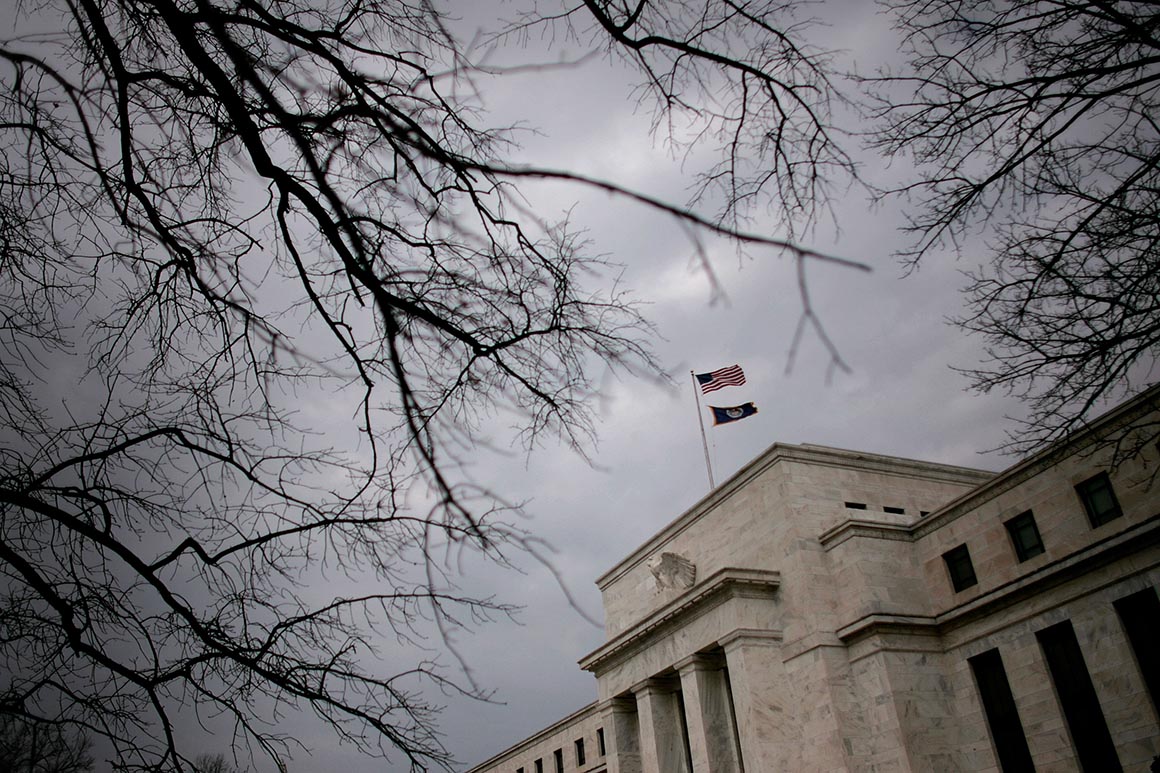
“What we’re trying to do is create conditions in which U.S. workers can keep their jobs or return to them,” he said. “And that’s what our sole focus is; we’re not trying to reach out for other public policy objectives or deviate from that.”
Despite BlackRock CEO Larry Fink’s friendly relationship with President Donald Trump, the company has become a target of conservatives after Fink shook the financial world in January by highlighting climate change as a prominent risk and pledging to shift the company’s investing policy to promote economic sustainability.
That has led to fears among Republican lawmakers such as Sen. Ted Cruz of Texas that it might disfavor oil and gas companies in its actions on behalf of the Fed.
“We believe the Federal Reserve should emphasize that … to avoid conflicts of interest, BlackRock must act without regard to this or other investment policies BlackRock has adopted for its own funds,” 17 Republican senators said in an April letter led by Kevin Cramer (R-N.D.) with Cruz among the signatories.
In contrast, nine Democratic senators in late April urged Powell to include climate risks in its considerations of which bonds to buy.
“The timing and scope of climate damages may not fit neatly into existing risk management frameworks, but they will be economy-wide and potentially irreversible,” wrote the lawmakers led by Sen. Brian Schatz (D-Hawaii).
That’s not the only concern raised by Democrats. García, along with eight other House members including Reps. Rashida Tlaib (D-Mich.) and Alexandria Ocasio-Cortez (D-N.Y.), stressed BlackRock’s size and influence in the economy. They argued that the Fed’s selection of the company underscores that it should be subject to more oversight.
“BlackRock is already big, and you must ensure that its work during this crisis doesn’t cement the firm’s structural importance in the global economy and our dependence on it,” the lawmakers wrote in their own letter to Powell and Treasury Secretary Steven Mnuchin.
Under the Obama administration, BlackRock successfully fended off efforts to be placed under the supervision of the Fed, a move that would have ratcheted up regulation under the assumption that the firm’s role is so key to markets that its failure could shock the financial system. The asset manager has maintained that its activities aren’t important enough to have that effect.
According to BlackRock’s contract with the New York Fed, the central bank will communicate its goals and strategies for the bond purchases to the firm, which will come up with specifics on how to execute them — plans the Fed will regularly sign off on. To start, BlackRock will earn two cents on every $100 for each purchase.
BlackRock’s own ETFs can’t make up a larger share of the Fed’s portfolio than their actual share of the market — currently 50 percent. And the firm will refund the Fed for fees it earns from the central bank’s holdings of its ETFs. According to the latest data released by the Fed, 48 percent of the ETFs it has bought are managed by BlackRock.
Still, the company will be entrusted to determine a fair market price of bonds in an environment where markets won’t necessarily be functioning properly — an area where the firm has extensive expertise and precisely why the Fed has hired it in the first place.
The Fed could have selected smaller asset managers for the job, but “none of those other entities I think would be given this kind of power and brought into the inner circles of financial management in the way that BlackRock is,” said Marcus Stanley, policy director at Americans for Financial Reform, which advocates for tougher rules on Wall Street.
Stanley said BlackRock’s growing relationship with the U.S. government has echoes of Citigroup and Goldman Sachs in decades past, when those firms worked closely with prior administrations and saw former executives ascend to high-level government positions. The point is supported by speculation that Fink has ambitions of becoming Treasury secretary under a future Democratic president.
“BlackRock faces a ton of political risks here that run from [accusations that] BlackRock is pursuing some agenda other than the best interest of the public, to the personal ambitions of Larry Fink,” Morley said.
But Ian Katz, an analyst at Capital Alpha Partners, said the central bank was always going to turn to a private firm to help out with the purchases.
“There’s only so many people in the world who have expertise on these very specific issues,” Katz said. “If you eliminate all the people who are working at big financial services companies, it would be very hard to find the right expertise.”
Source: politico.com
See more here: news365.stream






